APES
A SERIES OF KINETIC SOUND SCULPTURES
DRIVEN BY DATA CONSUMPTION AND CYBER ATTACKS
A SERIES OF KINETIC SOUND SCULPTURES
DRIVEN BY DATA CONSUMPTION AND CYBER ATTACKS
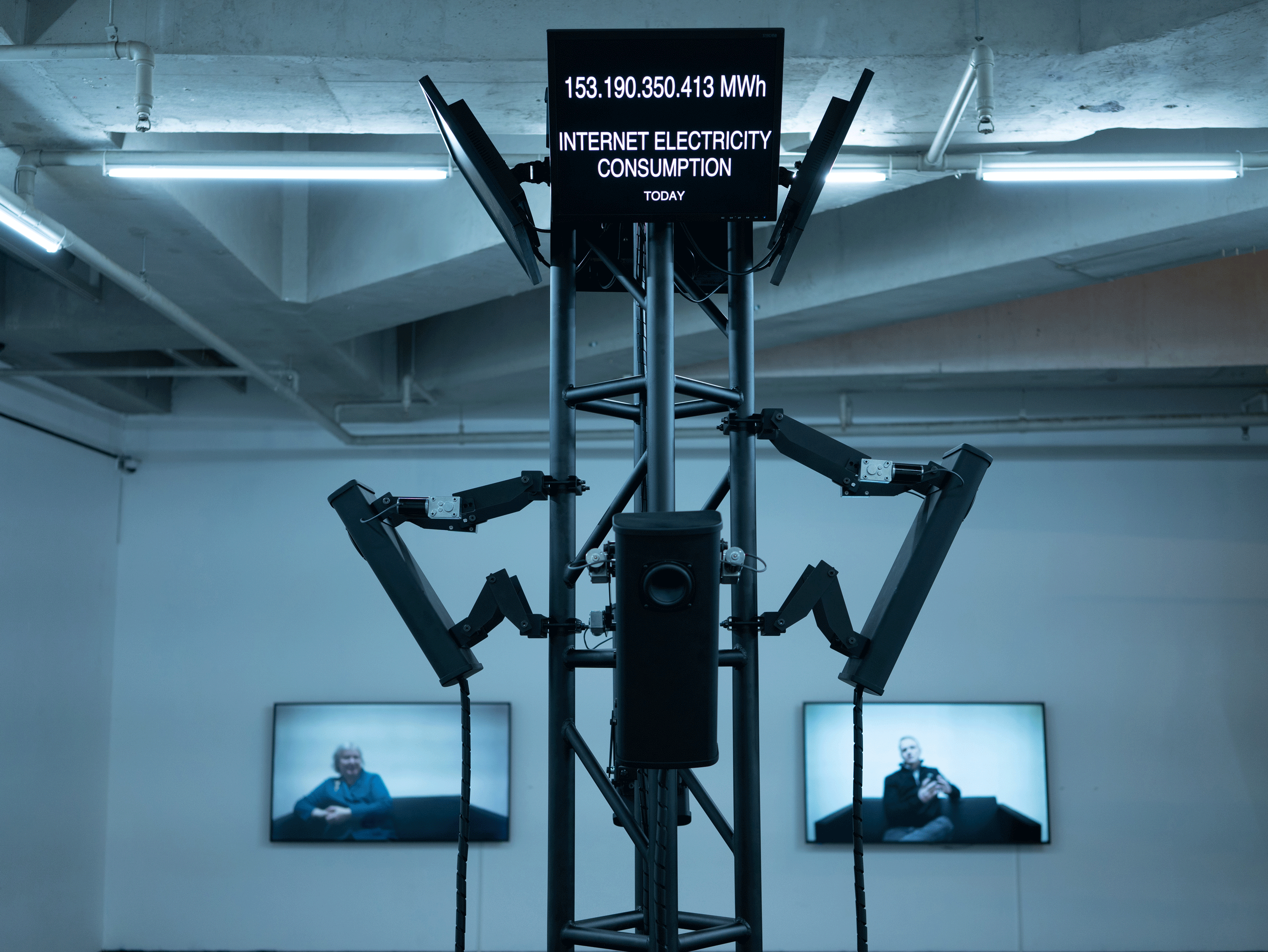
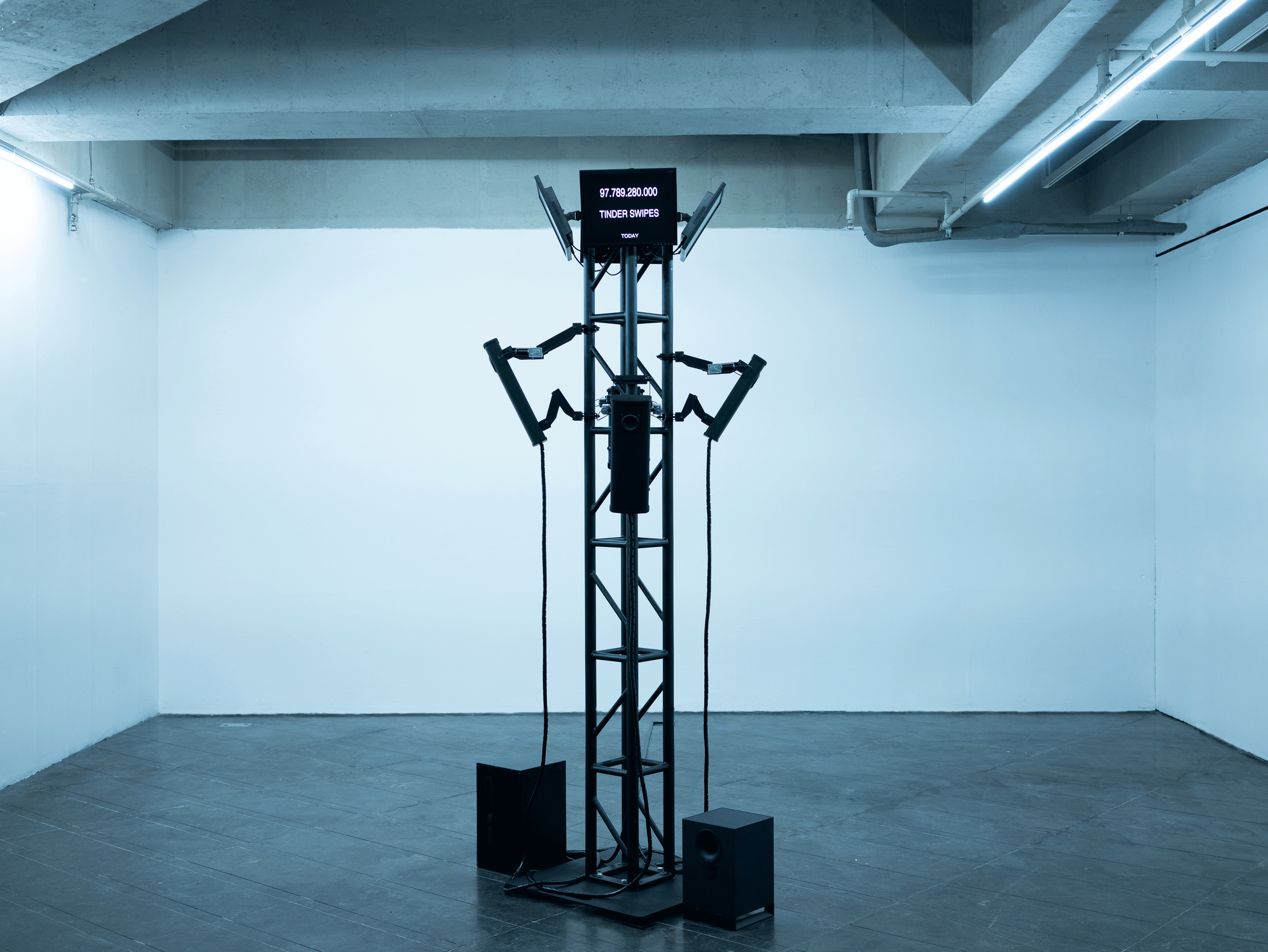
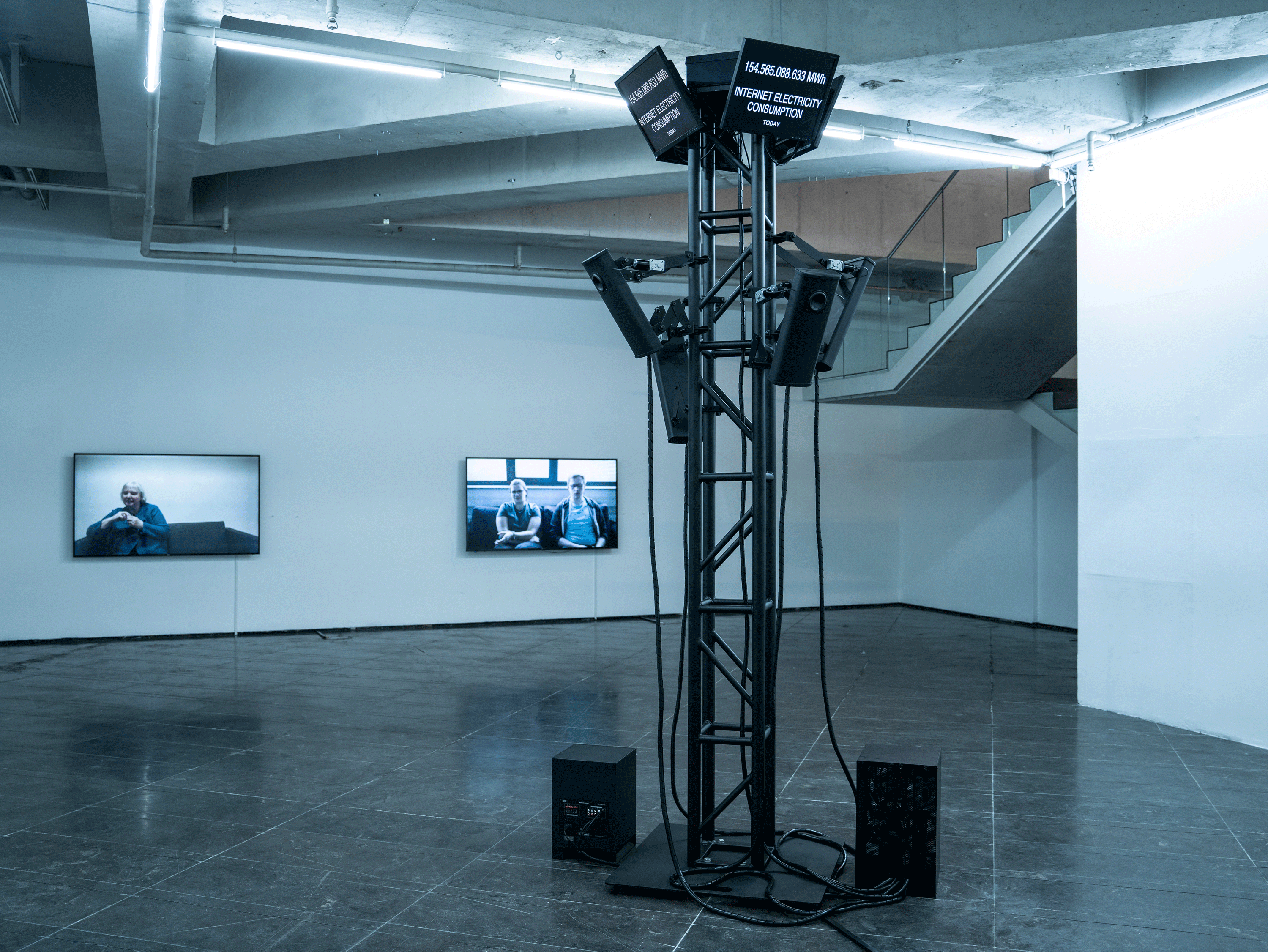
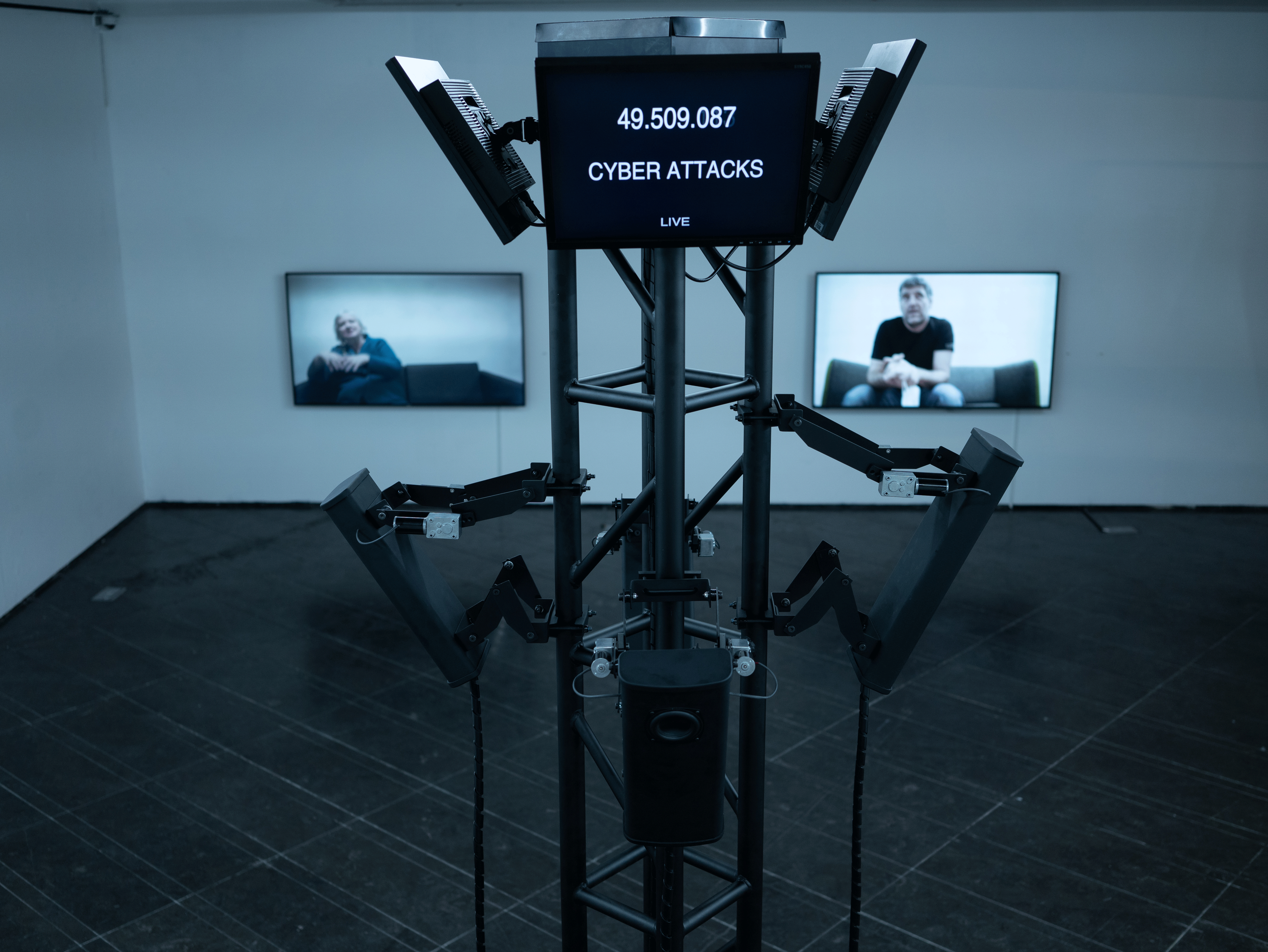
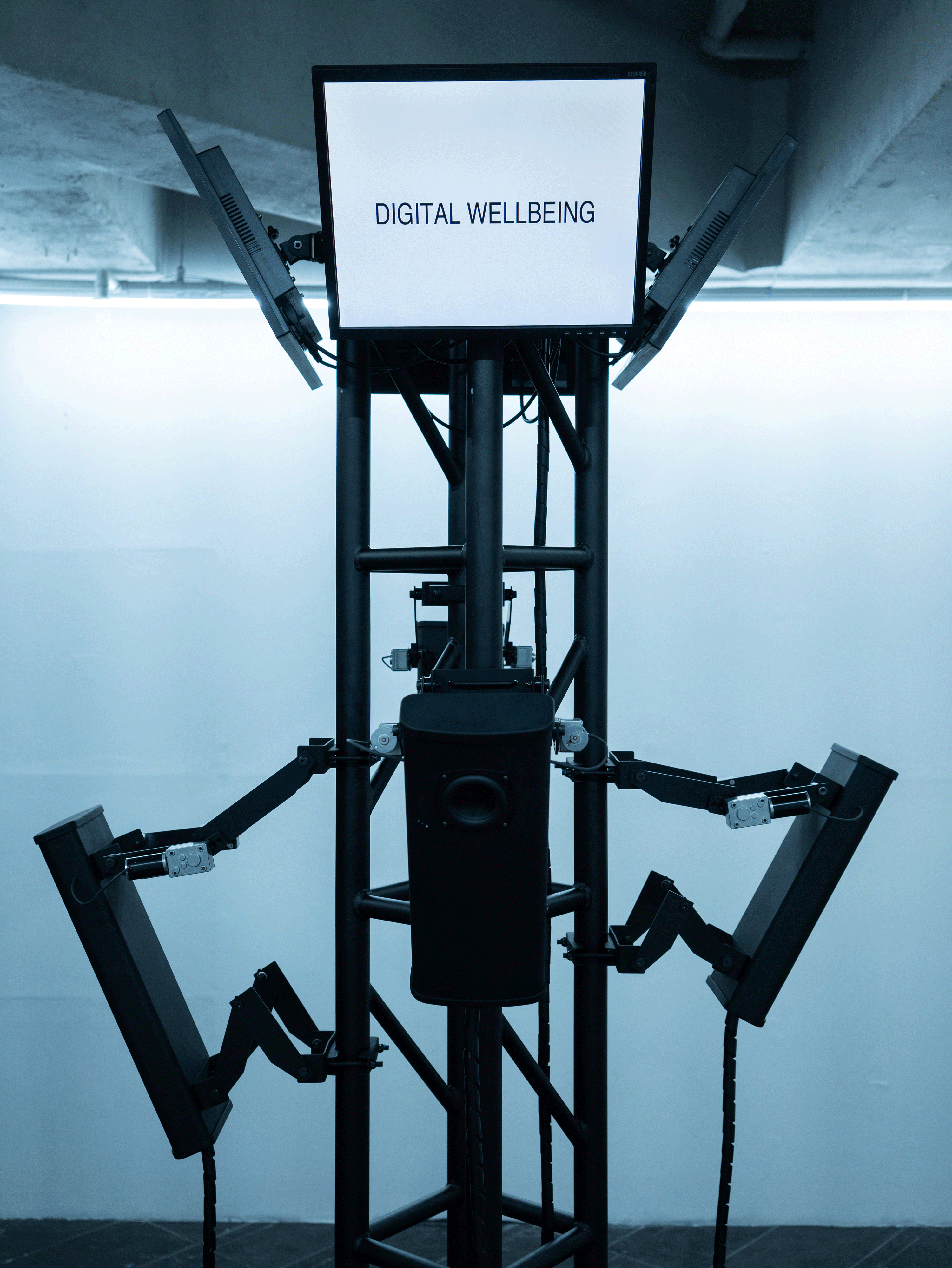
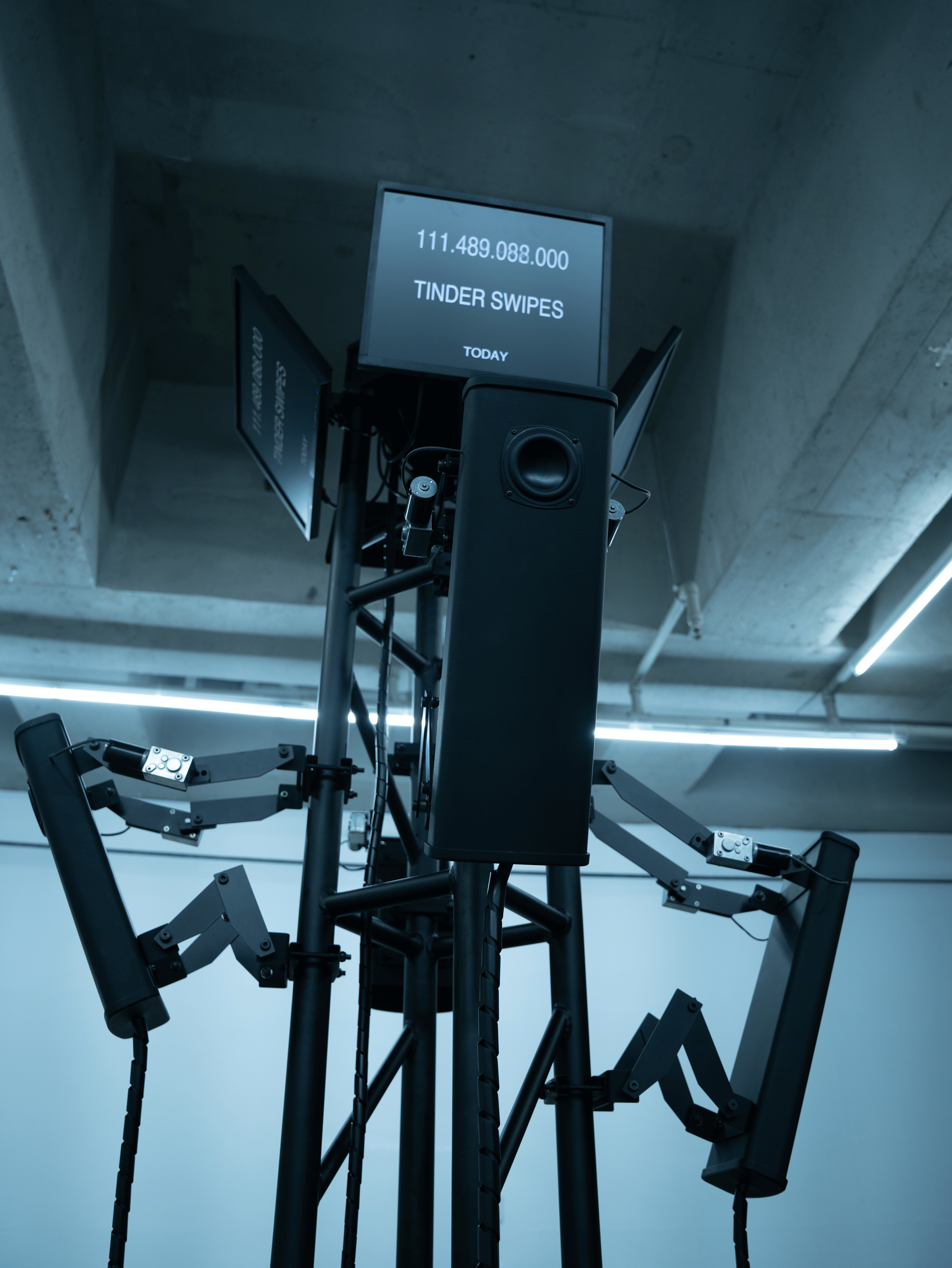
For more than 30 years, we have seen the Internet gradually seeping into every corner of our lives. The digital evolution enabled innovative networks designed to connect virtually everyone and everything including machines, objects, and devices. As a result, the amount of data we produce is growing at a staggering pace, and with it comes the increasing concerns about sustainability, privacy, surveillance, and cybersecurity.
"Apes are our closest relatives and are commonly seen as a symbol of our evolution".
The work takes us on a metaphorical exploration of our digital evolution, by navigating through the topics of cybersecurity, data consumption, surveillance capitalism, disinformation, behavior modification, and energy demands. It investigates the benefits and dilemmas that the new digital transformation brings to our society. Raising questions as, how can we avoid a rebound effect? Will progress, higher speeds, and higher data volumes not simply encourage us to consume, spend, travel, use and stream even more? How can we ensure that the new possibilities don’t exacerbate the environmental threat for our planet and how can we grow the muscle of cyber resilience as a society?
We, humans, have made great progress in inventing smart systems which are supposed to think and design a better future. Are we, as a society, ready to act as intelligently as the machines we created? Can the new digital evolution guide us towards a respectful and sustainable cohabitation with our fellow humans, the planet, and other species?
APES is a collection of kinetic sound sculptures resembling primates. They are made out of recycled WI-FI sector antennas. These devices are usually installed on rooftops in our cities. The sculptures are driven by algorithms showing dynamic counters of data consumption and cyberattacks: from Facebook likes, Google searches, tinder swipes, internet energy consumed and emails sent, to the adverse cyber events happening in real-time. The data is analyzed and translated into sound. Based on the idea of Surveillance Capitalism and behavioral modification through data appropriation, the APES are programmed to move with predictive patterns dictated by the various names appearing on the screens. These motions are accompanied by evolving soundscapes generated by a granular synthesizer driven by the data flows. When the counters hit certain key numbers, the sculptures release sonic events composed by an AI trained to deep fake the calls of real apes. These sonic events are modulated in real time by the data speed and diffused as a quadraphonic audio experience using the body of the APES as a resonating chamber.
The exhibition displays the kinetic sound sculptures as well as audio and video interviews collected during the research with scientists and experts associated with the project.
Credits:
“APES by Marco Barotti, was created during the art-science residency “RE:SEARCHING IT SECURITY” at Cluster of Excellence CASA, in collaboration with STATE”
Software programming Marco Accardi / Anecoica Studio
Assistant Design Xueqi Huangfu
Deep fake research and production Lea Schönherr, Joel Frank
Cyberattacks API research implementation Endres Puschner
Digital Wellbeing, inputs Asia Biega
Bitcoin electricity consumption, inputs Veelasha Moonsamy
Tecnical advisor Benjamin Maus
External eye Anna Anderegg
Photos and video Xueqi Huangfu
Funded by the Deutsche Forschungsgemeinschaft (DFG, German Research Foundation) under Germany's Excellence Strategy through the Cluster of Excellence “CASA - Cyber Security in the Age of Large-Scale Adversaries” (EXC 2092) and BBK-Projektbüro NEUSTART
Supported by Pina, Izis Festival, Ars Electronica, Loop Space Seoul
Travel and transport are supported by Berlin Senate Department for Culture and Europe
CASA team Angela Sasse, Asia Biega, Alena Naiakshina, Lea Schönherr, Joel Frank, Endres Puschner, Annika Gödde, Veelasha Moonsamy, Thorsten Holz, Estrid Sørensen, Gregor Leander, Markus Dürmuth, Tim Güneysu, Christof Paar, Konrad Rieck, Philipp Markert, Peter Schwabe, Patrick Schulte, Vladislav Mladenov, Federico Canale, Barbara-Henrika Alfing, Pascal Sasdrich, Johannes Tobisch, Paul Staat
Thanks to Christina Hooge, Victoria Domke, Angela Joseph, Sarah Möller, Benjamin Lehmann, Johannes Winterhagen, Yena Young, Marco Canevacci, Danilo Rasori, Dennis Malyska, Eurotruss